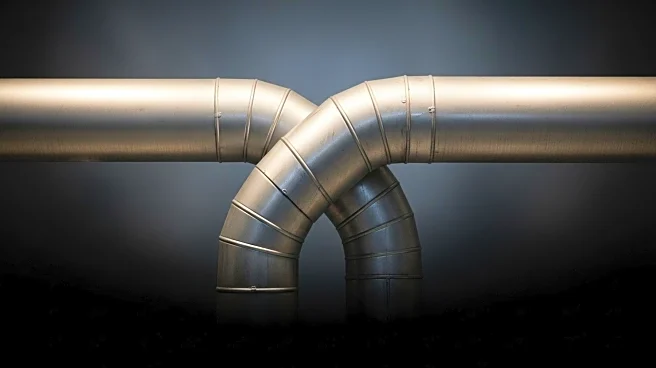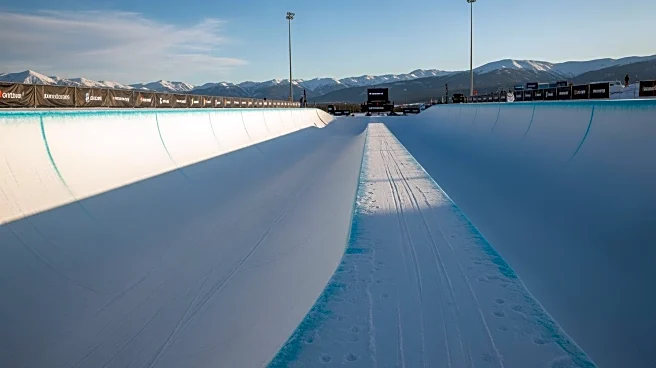What's Happening?
Ineos has announced the closure of two production units in Rheinberg, Germany, resulting in the loss of 175 jobs. The decision is attributed to high energy and carbon costs, coupled with a lack of tariff protection in Europe. Stephen Dossett, CEO of Ineos Inovyn, criticized European policies, stating that they are leading to industrial decline as competitors in the US and China benefit from cheaper energy. The closures are part of a broader trend of declining competitiveness in Europe’s chemical sector, with Germany experiencing an 18% drop in output since 2019. The affected units produce essential chemicals for various industries, including defense and renewable energy. Ineos plans to focus on preserving its PVC operations in Rheinberg, which supports around 300 jobs, and is seeking urgent state support to manage local transitioning costs.
Why It's Important?
The closure of Ineos's production units highlights significant challenges facing the European chemical industry, including high operational costs and insufficient tariff protections. This situation underscores a competitive disadvantage compared to regions like the US and China, where energy costs are lower. The closures not only impact local employment but also raise concerns about Europe's dependency on imports for essential materials. The broader implications include potential shifts in global supply chains and increased pressure on European policymakers to address these competitive disparities. The situation also reflects environmental concerns, as the closure of efficient plants may lead to higher global emissions due to increased reliance on imports from regions with less stringent environmental regulations.
What's Next?
Ineos is seeking state support to help manage the transition and maintain its remaining operations in Rheinberg. The company plans to work closely with partners and employees to minimize the impact of the closures. The situation may prompt European governments to reconsider their industrial and tariff policies to prevent further job losses and maintain strategic manufacturing capabilities. The chemical industry and other stakeholders are likely to advocate for policy changes to enhance competitiveness and sustainability in the region.
Beyond the Headlines
The closures at Ineos reflect broader economic and environmental challenges in Europe. The lack of tariff protection and high energy costs not only threaten industrial competitiveness but also raise ethical questions about environmental responsibility. As efficient European plants close, the reliance on imports from regions with higher emissions could undermine global efforts to combat climate change. This situation may lead to increased scrutiny of European environmental policies and their alignment with industrial strategies.









